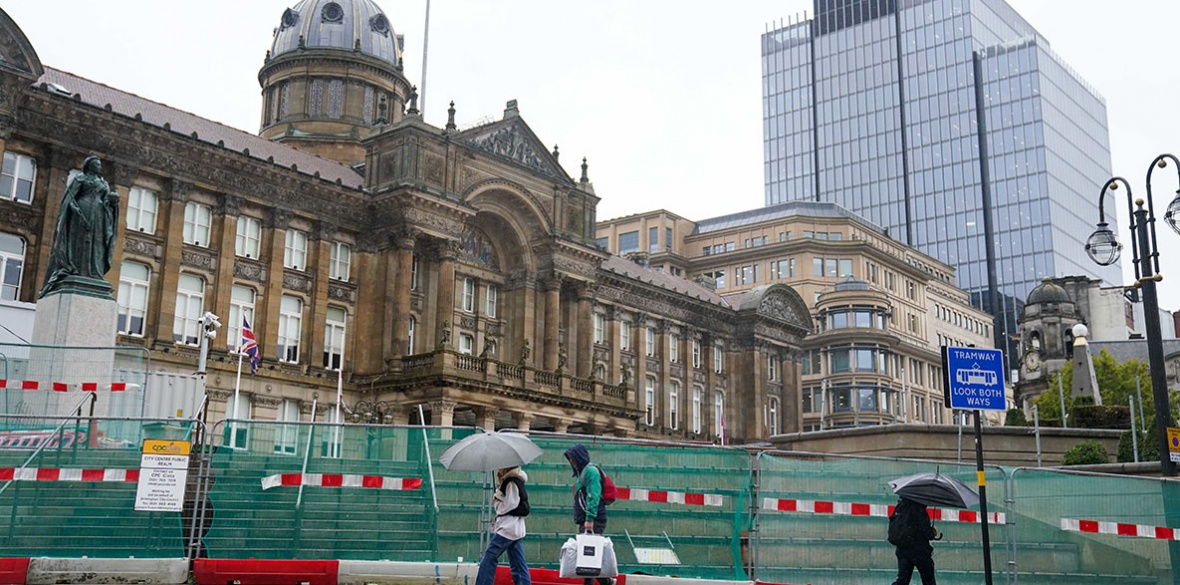This is the last article you can read this month
You can read more article this month
You can read more articles this month
Sorry your limit is up for this month
Reset on:
Please help support the Morning Star by subscribing here
THE Local Government Association (LGA’s) warning of sweeping cuts to basic services confirms that councils will soon be the focus of battles for the future of our communities.
The success of these struggles will depend on local mobilisation, union involvement and political leadership.
The financial pit councils face was dug in the early 2010s, with savage, 40 per cent cuts to central government funding.
It wasn’t matched by measures to enable councils to raise money from other sources, and wasn’t meant to be: Conservative-Lib Dem “austerity” saw reduced spending as the goal.
To keep services running, councils have cut where they can — the reason hundreds of libraries, municipal swimming pools and public toilets have been closed, and why services from care for the elderly to bin collections are outsourced to the cheapest, most unscrupulous firms.
Councils have also sold off £15 billion in assets since 2010 as they struggle to meet their obligations.
Now they are running out of road, especially since other consequences of Conservative misrule — a refusal to properly regulate energy prices for one, an explosion in the number of homeless people needing to be housed for another — are costing councils dear.
The LGA says 85 per cent of councils will cut spending on key services: 68 per cent are looking at cuts to refuse collection, road maintenance, libraries and “leisure services” — sports facilities, parks, museums, galleries and theatres among them.
Huge numbers of organised jobs face the axe, while spaces we hold in common will be degraded or privatised. Scores of councils will, like Medway in Kent, be planning to withdraw concessions like free swimming for under-16s and over-60s, but we need more of these allowances not less: a British youth obesity crisis has seen a 50 per cent increase in type 2 diabetes among children in the last five years.
The picture isn’t better for mental health, with epidemic loneliness among old people and mental ill-health so common among the young that people in their twenties are more likely to be out of work due to ill health than people in their forties.
The sharp rise in mental health problems among young people (34 per cent of 18 to 24-year-olds reported these in 2021-22) is a complex phenomenon, but nobody can imagine it will be improved by the removal of libraries, galleries or places to exercise.
If we are going to protect the lifeblood of our towns and cities, we need to stop these cuts.
Councils must be better resourced. Many plan big hikes to council tax, but battles like that erupting in Scotland which pitch council tax rises against service cuts inflict pain on working-class households whoever wins: council tax is regressive and unfair, and for many families projected increases mean real financial hardship.
Almost all politicians admit that council tax reform is needed in principle, but dodge the solutions of land and wealth taxes that would raise money in a fairer way.
So the alternative must be built from the ground up. The crisis dates back to the 2010s, when the Coalition of Resistance and then the People’s Assembly emerged to co-ordinate and lead anti-austerity struggles together with trade unions.
These grassroots, union-linked organisations helped prepare the ground for the movement that swept Jeremy Corbyn to the Labour leadership in 2015, and kept him there for five years.
Ironically, they then lost influence as activists gravitated to Labour-specific activity, putting all their eggs in the “Corbyn for PM” basket.
But the scale of the fightback we need now demands a resurgence of local anti-cuts campaigning and of the People’s Assembly in particular, bringing together the actors who can together force socialism back onto the political map — from which it has been removed by anti-democratic manoeuvring in the Labour Party, not because ideas of public ownership and wealth redistribution are unpopular.









